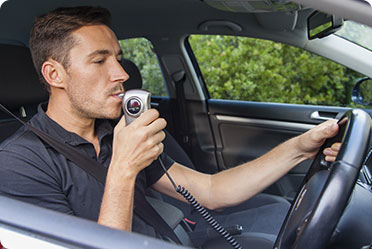
According to the attorney general, the drunk-driving tester known as Alcotest that had replaced the Breathalyzer in New Jersey about 5 years ago will soon be discarded and will not be used for testing the BAC level of a drunk driver. He said in court papers that the reason for retiring of Alcotest machine is that the machine’s manufacturer, Draeger Safety Diagnostics of Irving, Texas, will warranty it for only 3 more years. By 2016, a replacement technology will have to be introduced and set up in place.
Till 2016, the state wants the Supreme Court to relax the controls on Alcotest that it set down in State v. Chun, 194 N.J. 54 (2008), the seminal ruling that found the device scientifically reliable and accurate as a proof in DWI cases. As the state needs time for developing and replacing the BAC level test machine, using and relying on the Alcotest machine will give enough time to the state to find a new machine and to dedicate its resources in producing a new BAC level test machine.
The information from the state that the Alcotest is discarding was revealed after 2 defense lawyers named as Evan Levow and Matthew Reisig filed a March 15 motion in aid of litigants’ rights. They claim that the online database of Alcotest readings, required to be maintained under Chun, is incorrect and incomplete. They also have a problem with the state’s fees for use of the database that range from $5 to $60 depending on number of reports requested. They both ask the court to order the state to execute a series of revisions to the Alcotest software that were mandated by Chun.
In a 62-page opposition filed on 31st of May by Deputy Attorney General Robyn Mitchell, he admitted that numerous discrepancies exist between the numbers in the online database and the raw data, noting the database’s weeding out of exceptional files. In detail, he explained the technical troubles the state had in developing the online database. According to him, the decision of state to discard Alcotest comes after it was unable to work with Draeger Safety to make programming revisions that will facilitate the uploading of data from machines in police departments all over the state to a centralized database as mandated in Chun. Mitchell said that a software developing company known as Ayoka Systems was hired by Draeger to work on that job and in November 2012, Draeger told the state that it was not agreed to continue employing Ayoka. Draeger wanted the state to do the work in-house or to hire any other software company but the state didn’t have the resources to do the work itself. The state said that it will have to give the work to any company, which will cause a delay of 6 to 9 months. Mitchell said that “In light of Draeger’s decision to stop supporting the existing Alcotest 7110 instruments at the end of 2016 and the state’s lack of a direct business relationship with Ayoka, the time that it would take [to make the necessary software changes] will likely be comparable to the time it would take to implement a new breath testing program. Given that the Alcotest 7110 will become obsolete at the end of 2016, it makes more sense for the state to focus its attention and resources on replacing the Alcotest 7110”.
The Supreme Court said in Chun that the state arrange with Draeger to make revisions to programming code in the Alcotest in accordance with directives recommended by a former Appellate Division judge, Special Master Michael King but the Mitchell notes that the Supreme Court said in Chun that nothing suggests that Alcotest reports generated on machines lacking the mandated updates are in any way inappropriate. In Chun, the court stated that “we agree with the Special Master that updating the firmware to provide this information in addition to that which it already provides would merely be beneficial”.
Draeger officials and Arlington, Texas-based Ayoka didn’t respond to a call from a reporter who wanted to get the information about the case.
A Cherry Hill firm head, Levow and a solo in Freehold, Reisig both refused to comment on the filing of the state.
Peter Aseltine, a spokesman for the Attorney General’s office said that “none of this goes to the reliability of the Alcotest device, and we have a secure, operating database”. He didn’t answer any of the questions about the case.
The head of a Cherry Hill firm who represented the amicus curiae New Jersey State Bar Association in Chun, Jeffrey Gold said that “I really do find it outrageous, the gall the state has in saying, not only are we in violation of this order, in terms of changing the software, for five years, but we want another three years because we’re going to investigate another [machine]”. “They’re in violation of the order and there’s nothing in their response that says, to me, a justification” Gold added. He said that the database requirement as an accommodation to defense lawyers was recommended by King, because Draeger does not allow non-government entities to get an Alcotest. The accommodation was made because defense experts cannot conduct experiments on the Alcotest to know if a particular defendant’s reading is an outlier, but they can examine the database. The design of the database and its use of Microsoft Excel hamper inquiries like these.
News Source: www.Law.com
Leckerman Law focuses on safeguarding the
rights of individuals charged with DUI, DWI, DAI, and
other alcohol-related criminal offenses - Call Us Now For
NJ DWI (856) 429-2323 | For PA DUI (215) 496-9292